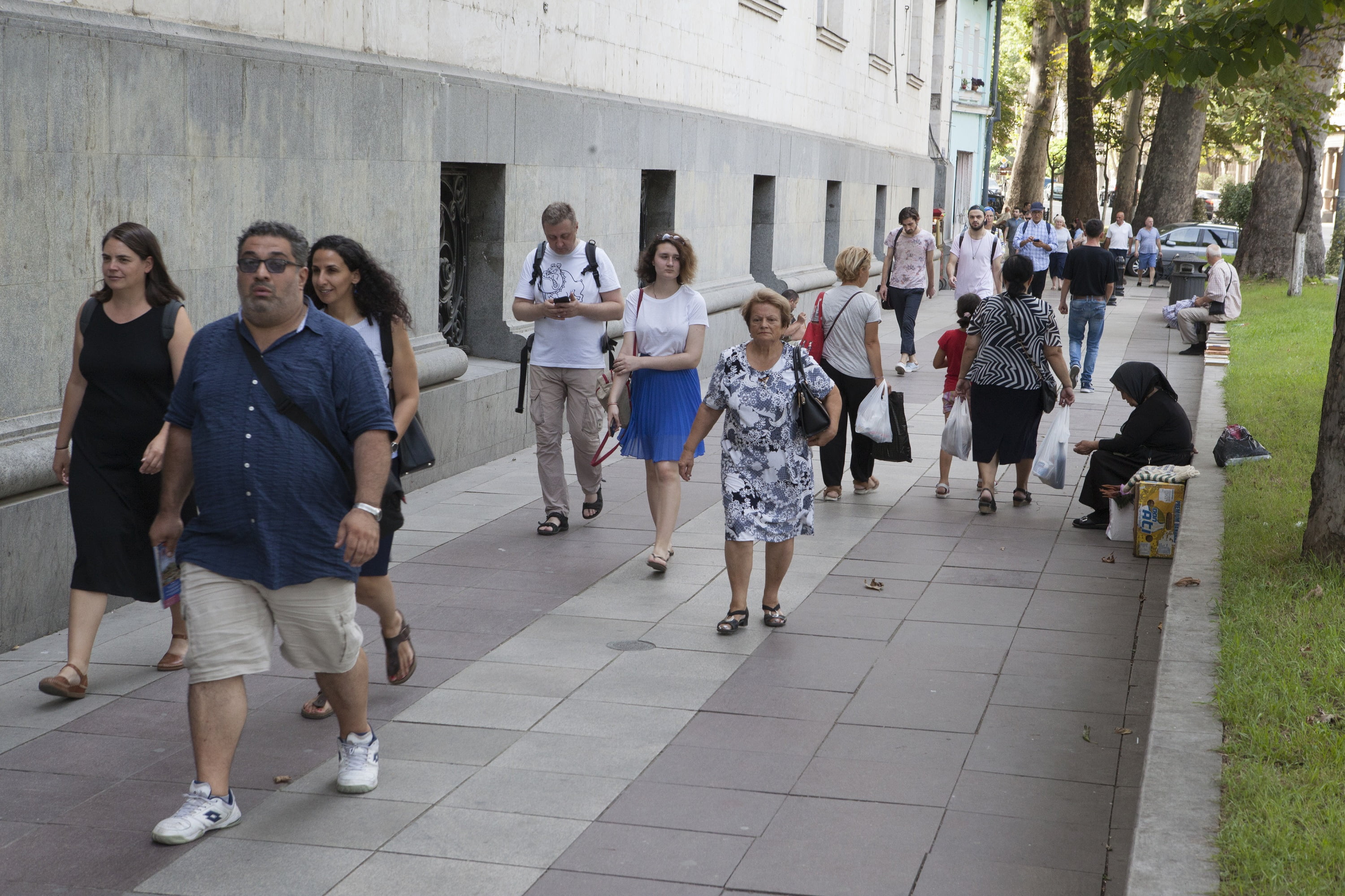On July 18, the Caucasus Research Resource Center (CRRC-Georgia) presented the results of the Caucasus Barometer 2024 survey for Georgia. A total of 1509 respondents were interviewed during the period from April 16 to May 13, 2024. The survey has a maximum margin of error of up to 3%. The questions measured attitudes towards social values and norms as well as politics, power and democracy.
The survey results encompass Tbilisi, urban, and rural settlements, with the exception of the occupied territories. The previous survey was conducted in 2021.
Social Values and Norms
The survey includes findings on issues such as people’s satisfaction with their lives, levels of trust in others, feelings of rejection and emptiness, and perceptions of fatalism. An interesting finding is the one allegedly indicating the drop in homophobic attitudes, which shows that the number of people who see homosexuals as undesirable neighbors has dropped significantly, from 23 percent in 2017 to just nine percent in 2024.
Drug addicts top the list of undesirable neighbors, with criminals coming in second.
As for the trust in people, most of the people tend to no trust their fellow citizens, with only 17 percent believing “most people can be trusted”, 28 percent saying they are “in the middle,” and 54 percent exhibit more cautious attitude that “you can’t be too careful in dealing with people.”
When it comes to perception of fatalism, 27 percent of the respondents think “everything in life is determined by fate,” almost the same percentage (25) don’t have strong view on the issue and say they are “in the middle”, while 46 percent believe people themselves are the ones shaping their own fate.
Politics, Power, Democracy
As for the interest of people in politics, according to the survey, 19 percent of the respondents say they are “very interested” in politics. That is virtually the same (1 percent more) than in 2021, and five percent less than in 2008 when the first wave of the survey was conducted. Those “quite interested” in politics constitute 35 percent of respondents in 2024, as opposed to 28 percent in 2021.
The number of “hardly interested” people is more or less similar in 2008, 2021 and 2024. However, the percentage of “not at all interested” stands at 16 percent in 2023, which marks a significant drop from 23 percent in 2021.
As for the direction of Georgia’s politics, the total of 23 percent exhibit more or less positive attitude while 35 percent have an overall negative perception. 29 percent of respondents believe “politics do not change at all.” 13 percent either did not know or refused to answer.
Unemployment (26%), poverty (13%), political instability (10%), rising prices / inflation (7%) are listed as the “most important” issues facing Georgia in 2024.
In an attitude towards democracy questions 67 percent of the respondents preferred it over any other kind of other political system. However, only 9 percent believe Georgia is fully a democracy, while 25 percent think it is a democracy with minor problems. 42 percent think Georgia is a democracy with major problems, while 14 percent think the country is not a democracy at all.
As for the trust for executive government (the Prime Minister and the cabinet) are “fully” trusted by 10 percent, “distrusted” by 18 percent, while 21 percent “full distrust” them.
The Parliament enjoys the “full trust” of only seven percent, is “rather trusted” by 15 percent, and is “rather distrusted” and “fully distrusted” by 21% percent in each case.
The level of trust in political parties remains low. Only three percent “fully trust” them, while nine percent “rather” do so.
The percentage of respondents who “rather trust” the President has increased from 12 to 20 percent, and the percentage of those who distrust her remains more or less similar to 2021.
The army, the police and the religious institutions remain the most trusted institutions.
Media enjoys the trust (“rather trust” and “fully trust” combined) of some 24 percent, and distrusted (“rather distrust” and “fully distrust”combined) by 36 percent.
The percentage of those who trust NGOs in 2024 remains similar to that of 2021. However, according to the survey, the percentage of people who “neither trust nor distrust” NGOs has decreased from 43 percent in 2021 to 32 percent in 2024.
Also Read:
